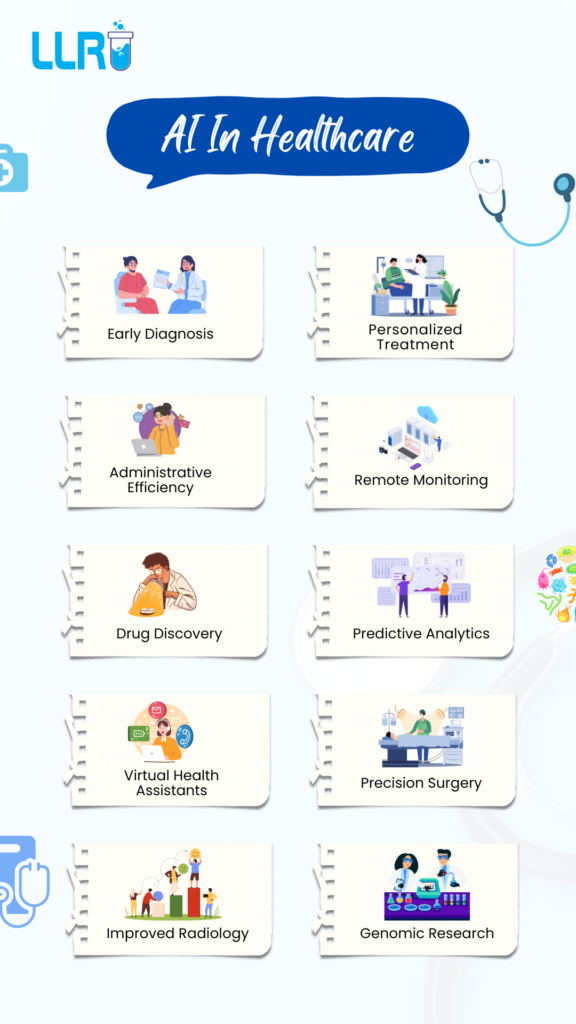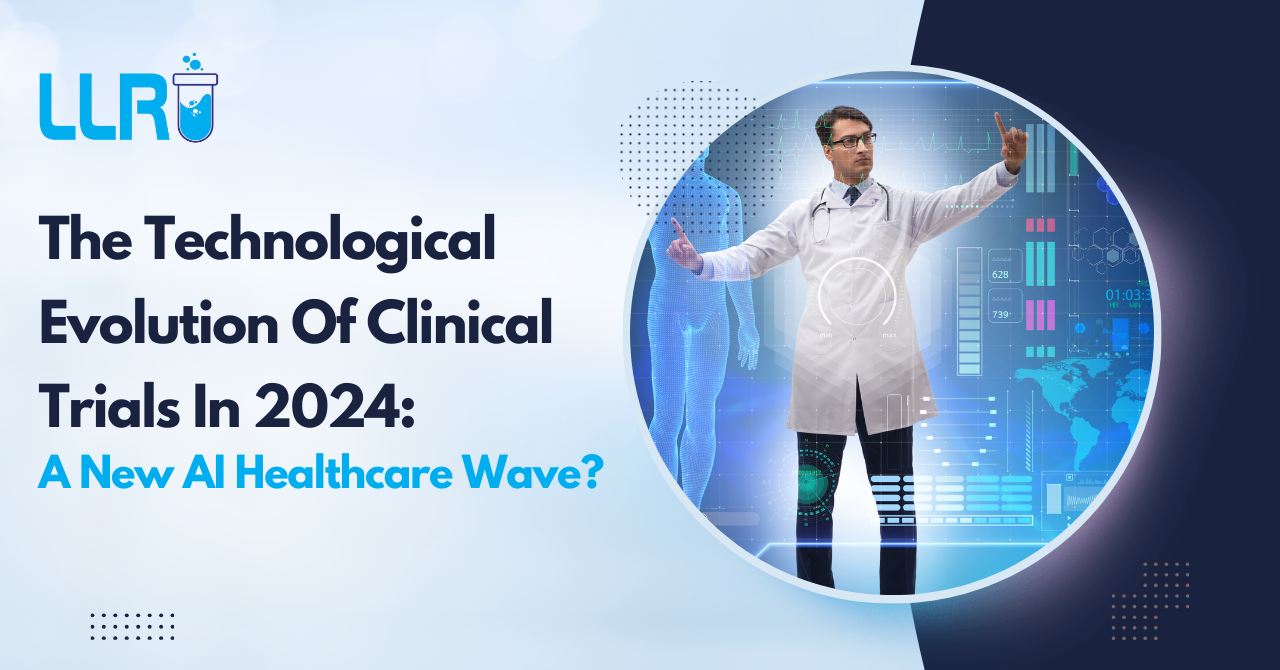The world is changing – speedily and swiftly at that; this expeditious change is reflected in each and every aspect of our lives. And one of the most highlighted topics of evolutionary shifts is how technology is changing clinical trials. The year 2024 is standing witness to the pivotal moment in the technological revolution of clinical trials – a statement that is as solid as the 3.8-billion-year-old sedimentary rocks in Greenland.
With the integration of artificial intelligence (AI) continuing to gain momentum, a new wave of innovation has emerged, reshaping the traditional archetypes of medical research. This set of cutting-edge technologies not only promises to rationalize and organize processes but also holds the potential to revolutionize the way we approach clinical trials.
With AI at the forefront, researchers are poised to harness its power to enhance efficiency, improve patient outcomes, and unlock new insights into disease management and treatment modalities. In this era of one advancement after the other, the convergence of AI and healthcare shines a light on the transformative journey toward more accessible, inclusive, and beneficial clinical trials.
Examples Of Technology In Clinical Trials
Clinical trials are fundamental to the progress of medical research and the enhancement of patient care. They serve as a crucial component in the development of new drugs, providing invaluable insights into their effectiveness and safety. By rigorously testing new treatments and therapies, clinical trials not only contribute to scientific knowledge but also offer hope for patients seeking innovative healthcare solutions, prime examples of how technology is changing clinical trials.
Moreover, they facilitate the identification of potential breakthroughs that have the potential to revolutionize medical practice and improve outcomes for individuals worldwide.
Before we begin to get into the examples of how technology is changing clinical trials, it is important to highlight the central role played by the COVID-19 pandemic in the same. The 2019 pandemic that wreaked havoc on the world economically, emotionally, and entirely, especially acted as a driving force in hastening the speed of innovations within the clinical research field. As a result, there is a definite surge in the number and quickness in the healthcare industry, which has resulted in decentralized and hybrid clinical trials.

And now, here are a few examples of technology in clinical trials are as mentioned below, which shines a light on how technology is changing clinical trials:
AI and big data: AI eases the process of collecting large amounts of data from patient medical records which then allows for the easy identification of the right candidates for clinical trials; and not just that, the elaborate feedback from these trials can result in the development of swift interventions.
Wearables: One of the most significant developments in recent times has been the widespread adoption of wearable devices, such as smartwatches, skin patches, smart pills, and fitness trackers.
Telemedicine and mobile communications: Incorporating virtual tools such as telemedicine and remote patient monitoring in clinical trials makes it possible for more people from around the world to take part in clinical trials.
Digital twins: Unlike the name suggests, these have nothing to do with real-life human babies but are virtual models of objects in the real world. From the healthcare perspective, digital twins can virtually replicate medical devices, monitor service deliveries, and more.
Data security and patient safety: In the current world that values privacy more than anything, these examples of technology in clinical trials are sure reflections of the value these interventions have in instilling data security and patient privacy.
Healthcare chatbots: Similar to the telemedicine scope, healthcare chatbots affect the betterment of patient experience and the delivery of services, which in turn can not only benefit the patients but also the healthcare institutions.
Undeniably, these novel approaches offer flexibility and accessibility, allowing experts to engage in research from diverse locations and settings.
AI Boom In Clinical Trials
During the entry of AI into the healthcare industry, there were agitations on how will AI change clinical trials and possibly on how technology is changing clinical trials – and now, we witness the strong role AI has in the innovation of everything from keeping patient records to intervening in cardiac surgeries. With researchers continuing to explore the path of technological interventions in the healthcare field, the application of AI in clinical trials is nothing short of a miracle.
For example, while many medications developed using AI are still in the early phases of development, notable progress has been made. For example, the first-ever drug created with AI is currently undergoing clinical trials, showcasing the potential of this technology in drug discovery.
Additionally, an existing medication has been repurposed for the treatment of COVID-19, highlighting the swift application of AI in addressing urgent healthcare needs. These advancements boldly highlight the growing influence of AI in pharmaceutical research and its ability to accelerate the development of novel and innovative therapies while addressing global health challenges.
Challenges Of Adopting Technology In Clinical Trials
Anything that is good and has a deluge of benefits is never without its own challenges, and the same applies to the intervention of technological advancements in the healthcare field. For example, according to a global survey conducted by Verdict to find out what makes it hard to use digital tools in clinical trials and how technology is changing clinical trials, most people, about 32%, said the biggest issue is making sure the data is real, safe, and private.
Some, around 17%, thought that getting access to these tools was a big problem, while others, about 15%, found it tough to use the technological innovations in the trials.
Here are a few commonly reported challenges of adopting technology in clinical trials:
- Lack of data security and privacy
- Participant recruitment and engagement
- Cost incurred
- Integration with the existing systems
Conclusion
If one were to wonder how technology is changing clinical trials, the answer is right in front of us – by leveraging technology and novel methodologies, decentralized and hybrid clinical trials streamline processes, enhance participant recruitment, and enable real-time data collection. This transformation holds a strong promise for advancing medical research and ultimately improving patient outcomes on a global scale despite its reported limited challenges.

